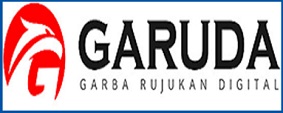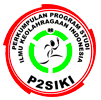Pentingnya Penilaian Alternatif Dalam Pendidikan Jasmani
Abstract
Physical Education is not only related to the psychomotor aspects of students. This research found that traditional evaluation tests such as the Physical Fitness Test and subjective assessment criteria such as assessing student effort have been popular means of the assessment process in the past. This research aims to examine the importance of alternative assessment models in physical education to achieve more objective learning outcomes. This research is descriptive research that uses library observation methods from various existing literature. This research uses the literature study method. A literature search was conducted to answer the questions raised in this research. This research utilizes various literature from the last ten years sourced from Elsvier, Google Scholar, and Researchgate. Article searches were carried out using the keywords assessment, physical education, and authentic assessment. The conclusion that can be drawn from the results of the literature study is that alternative assessment methods are currently used and there is more emphasis on education as a whole. Because actually assessment in physical education must cover 3 aspects, namely cognitive, affective and psychomotor. In light of the above, this research article provides evidence of real progress in a field that has been beset by challenges to achieve educational goals as educational endeavors, much work remains to be done to disseminate what is considered to be excellent assessment practices.
Keywords: Physical Education, Alternative Assessment, Authentic Assessment
Downloads
References
Andrade, H. L. (2019). A critical review of research on student self-assessment. Frontiers in Education, 4, 87.
Ashford-Rowe, K., Herrington, J., & Brown, C. (2014). Establishing the critical elements that determine authentic assessment. Assessment \& Evaluation in Higher Education, 39(2), 205–222.
Baghurst, T. (2014). Assessment of effort and participation in physical education. The Physical Educator, 71(3), 505–513.
Barquero-Ruiz, C., Arias-Estero, J. L., & Kirk, D. (2020). Assessment for tactical learning in games: A systematic review. European Physical Education Review, 26(4), 827–847.
Bereményi, B. Á., & Carrasco, S. (2015). Interrupted aspirations: research and policy on Gitano education in a time of recession, in Spain. Intercultural Education, 26(2), 153–164.
Bond, M., Zawacki-Richter, O., & Nichols, M. (2019). Revisiting five decades of educational technology research: A content and authorship analysis of the British Journal of Educational Technology. British Journal of Educational Technology, 50(1), 12–63.
Catarino, L. M., Carvalho, H. M., & Gonçalves, C. E. (2017). Analysing tactical knowledge through team sport assessment procedure/TSAP: a case study in basketball.
Chelladurai, P. (2014). Managing organizations for sport and physical activity: A systems perspective. Taylor \& Francis.
de St Jorre, T., & Oliver, B. (2018). Want students to engage? Contextualise graduate learning outcomes and assess for employability. Higher Education Research \& Development, 37(1), 44–57.
Garc\’\ia López, L. M., González V\’\illora, S., Gutiérrez, D., & Serra, J. (2013). Development and validation of the Game Performance Evaluation Tool (GPET) in soccer. Sport TK, Vol. 2, No1 (2013).
Godbout, P., & Grehaigne, J.-F. (2020). Revisiting the tactical-decision learning model. Quest, 72(4), 430–447.
Godbout, P., & Gréhaigne, J.-F. (2022). Regulation of tactical learning in team sports--The case of the tactical-decision learning model. Physical Education and Sport Pedagogy, 27(3), 215–230.
Ha, T., Dauenhauer, B., & Krause, J. (2022). Facilitating Alternative Assessment with Technology in Physical Education. Strategies, 35(2), 36–39.
Hamodi, C., López-Pastor, V. M., & López-Pastor, A. T. (2017). If I experience formative assessment whilst studying at university, will I put it into practice later as a teacher? Formative and shared assessment in Initial Teacher Education (ITE). European Journal of Teacher Education, 40(2), 171–190.
Hernando-Garijo, A., Hortigüela-Alcalá, D., Sánchez-Miguel, P. A., & González-V\’\illora, S. (2021). Fundamental pedagogical aspects for the implementation of models-based practice in physical education. International Journal of Environmental Research and Public Health, 18(13), 7152.
Hills, A. P., Mokhtar, N., & Byrne, N. M. (2014). Assessment of physical activity and energy expenditure: an overview of objective measures. Frontiers in Nutrition, 1, 5.
Jenkinson, K. A., Naughton, G., & Benson, A. C. (2014). Peer-assisted learning in school physical education, sport and physical activity programmes: a systematic review. Physical Education and Sport Pedagogy, 19(3), 253–277.
Killian, C. M., & Mays Woods, A. (2021). Assessment practices in K--12 physical education in the United States: A scoping review of research, 2000--2020. Research Quarterly for Exercise and Sport, 92(2), 248–258.
Komarudin, K. (2017). Portfolio assessment to enhance students’ achievement in learning physical education. 3rd International Conference on Education and Training (ICET 2017), 105–109.
Krochmal, P., Cooper, D. M., Radom-Aizik, S., & Lu, K. D. (2021). US School-Based Physical Fitness Assessments and Data Dissemination. Journal of School Health, 91(9), 722–729.
Lillard, A. S. (2017). Montessori: The science behind the genius. Oxford University Press.
López-Pastor, V. M., Kirk, D., Lorente-Catalán, E., MacPhail, A., & Macdonald, D. (2013). Alternative assessment in physical education: a review of international literature. Sport, Education and Society, 18(1), 57–76.
Lorente, E., & Kirk, D. (2013). Alternative democratic assessment in PETE: an action-research study exploring risks, challenges and solutions. Sport, Education and Society, 18(1), 77–96.
MacPhail, A., & Murphy, F. (2017). Too much freedom and autonomy in the enactment of assessment? Assessment in physical education in Ireland. Irish Educational Studies, 36(2), 237–252.
Moldavska, A., & Welo, T. (2017). The concept of sustainable manufacturing and its definitions: A content-analysis based literature review. Journal of Cleaner Production, 166, 744–755.
Otero-Saborido, F. M., Lluch, A. C., & Gonzalez-Jurado, J. A. (2015). Student precision and reliability of the team sport assessment in basketball: a primary education case study. South African Journal for Research in Sport, Physical Education and Recreation, 37(2), 83–94.
Pascual-Arias, C., Hortigüela-Alcalá, D., Nieto, T. F., López-Pastor, V. M., Fernández-Garcimart\’\in, C., & Soria, M. M. (2023). Learning to Apply Formative and Shared Assessment Through In-Service Teacher Education and Action Research. In Formative and Shared Assessment to Promote Global University Learning (pp. 132–149). IGI Global.
Qi, J., & Wang, L. (2018). Social interaction between students with and without disabilities in general physical education: a Chinese perspective. Physical Education and Sport Pedagogy, 23(6), 575–591.
Santana, M. V., Gutiérrez-Sánchez, Á., & López-Bodoya, J. (2015). Reciprocal teaching of gymnastic links in higher education. Science of Gymnastics Journal, 7(2), 33–44.
Tannehill, D., MacPhail, A., Halbert, G., & Murphy, F. (2013). Research and practice in physical education. Routledge.
Verger, A., & Curran, M. (2014). New public management as a global education policy: its adoption and re-contextualization in a Southern European setting. Critical Studies in Education, 55(3), 253–271.
Webb, A. S., Wong, T. J., & Hubball, H. T. (2013). Professional development for adjunct teaching faculty in a research-intensive university: Engagement in scholarly approaches to teaching and learning. International Journal of Teaching and Learning in Higher Education, 25(2), 231–238.
Winnick, J. P., & Porretta, D. L. (2016). Adapted physical education and sport. Human Kinetics.
Zhang, Y., Niu, P., Cui, L., Zhou, F., & Zhao, W. (2017). Effects of forum-based online peer assessment on students’ academic performance. International Journal of Social Media and Interactive Learning Environments, 5(4), 269–277.
Copyright (c) 2023 Muhammad Akbar Syafruddin

This work is licensed under a Creative Commons Attribution-ShareAlike 4.0 International License.









